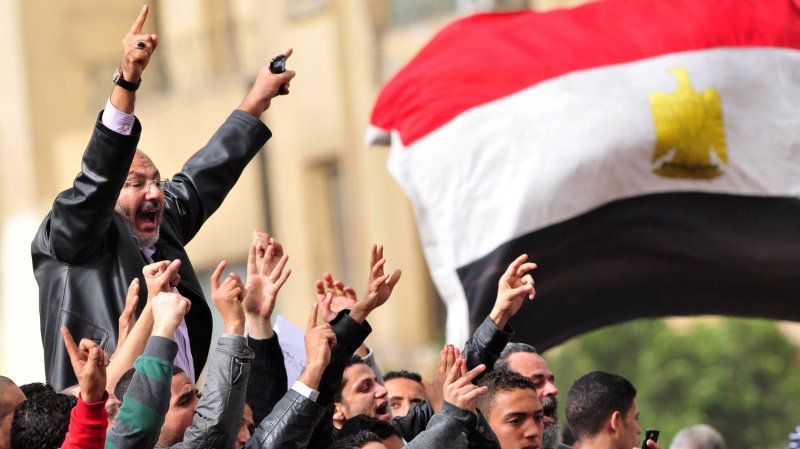Egyptian demonstrators protest the government of President Hosni Mubarak in Cairo, Egypt on January 31, 2011. UPI |
License Photo
WASHINGTON, May 1 (UPI) -- Freedom of the press made dramatic gains in Egypt, Libya, and Tunisia in 2011 as a result of the Arab Spring protests, a watchdog group said Tuesday.
The Washington-based Freedom House said in a report overall global freedom of the press did not decline for the first time in eight years.
Egypt, Libya, and Tunisia went from "not free" to "partly free," the report said.
Elsewhere in the Middle East and North Africa, press freedom declined in Bahrain and Syrian amid crackdowns on protest movements, and conditions in Iran were still "extremely restrictive," with dozens of journalists behind bars, Freedom House said in a news release.
"The newly opened media environments in countries like Tunisia and Libya, while still tenuous and far from perfect, are critical for the future of democratic development in the region and must be nurtured and protected," Freedom House President David J. Kramer said in the release. "Also of great concern are those countries, both in the Middle East and around the world, where authoritarian regimes are now on the defensive, creating an even more perilous situation for journalists."
The report noted gains in press freedom in countries including Myanmar, Indonesia, Niger, the Philippines, Thailand and Zambia.
In China, Russia, Iran and Venezuela, authorities jailed critics, shut down media outlets and brought legal cases against journalists, while threats to press freedom resulted in democracies including Chile and Hungary being downgraded from "free" to "partly free."
Freedom House reported "substantial deterioration" in Ecuador, Macedonia, Malawi, Uganda and Ukraine, five countries where the press was rated "partly free."
Authorities cracked down on journalists, sometimes violently, covering anti-government protests in Uganda, Angola and Djibouti, the report said, while Russia, Venezuela, Zimbabwe, China and Vietnam have all retained or extended their control of television news
With widespread violence and crimes against media workers going unpunished, Mexico continued to be one of the world's most dangerous places for journalists, the report said.















